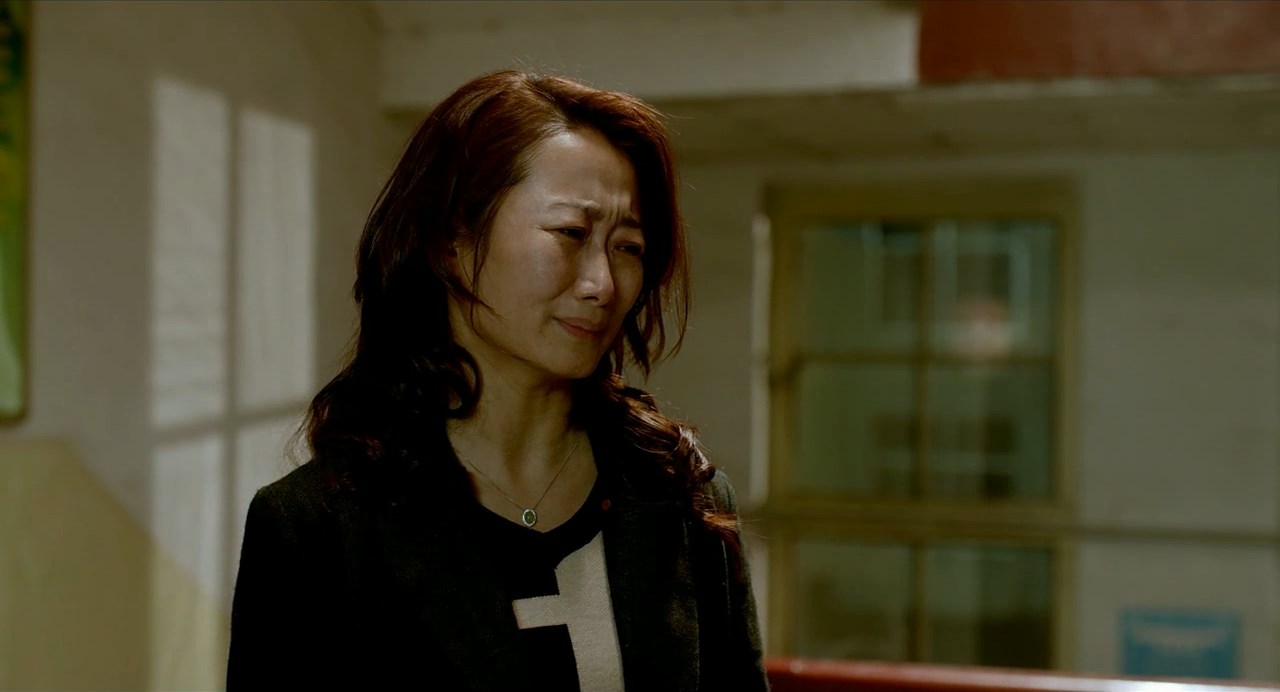Reviewed by Rachael Kaines
Mountains May Depart is the latest film from Chinese writer and director Jia Zhang-ke. The film offers an insightful and measured look at the effects of globalisation, as well as a meditation on the current and future state of diaspora and the dissolving of culture. Mountains May Depart is a movie split into three parts: the nostalgic and hopeful past of 1999, the unpleasant present of 2014, and the alien future of 2025.
The film opens in 1999 in China and it feels very much as if we are in the past — a past where people are filled with hope for the new millennium and the technological and economic advancement it is bound to bring. The first part of the film feels haunted by nostalgia, partly from the clever use of boxed aspect ratio (that widens slightly for the middle segment and becomes fully wide-screen for the future segment) and is almost soap opera-like in the love triangle between Tao (Zhao Tao), Liang (Liang Jingdong), and Jingsheng (Zhang Yi). The film finds its feet exceptionally in the middle section, with the harsh realities of the present and the failed promise of the new millennium looming heavy over the characters heads. The third part does not flow as well, although this is where Jia Zhang-ke really brings his ideas together, the film becomes a bit too difficult to be seen as just a story, rather than a lesson to be learnt.
Zhao Tao (whose husband is Jia Zhang-ke) gives an incredible central performance as Tao when the film feels as if it has lost its footing slightly in the third act her absence is the main part of that. But often the film felt jilted, with the performances swinging between sincere and moving to insane melodrama in a moment. Go West by The Pet Shop Boys is a motif throughout the film for the characters as they start to strive for a more western way of life and it is typical of the heavy-handedness of much of the film.
Objectively Mountains May Depart is a good movie, a great movie even, it covers important issues surround globalisation, the loss of culture, and modern diasporas. Unfortunately, it feels less like simply the telling of a story, than a didactic narrative that makes a lot of the excellent things it has to say less palatable. In retrospect it can be appreciated greatly, but with a more clinical enjoyment than the visceral and immediate enjoyment normally expected of great cinema.
Mountains May Depart is an important film and should be seen by many people, unfortunately it will not be enjoyed by most. It is too heavy handed in the way it approaches it’s big subjects, and although it manages a substantial impact, it mostly comes off as trying to make a point, rather than just telling a story.
Director: Zhangke Jia
Writer: Zhangke Jia (screenplay)
Stars: Tao Zhao, Yi Zhang, Jing Dong Liang
Mountains May Depart in cinemas from Friday 15th of December.

Comments are closed, but trackbacks and pingbacks are open.